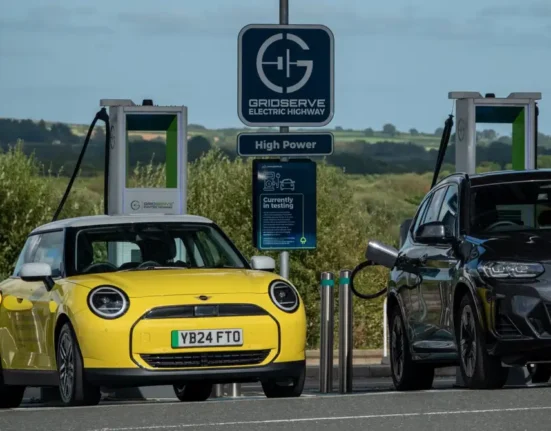The automotive industry is undergoing a seismic shift as electric vehicles (EVs) redefine transportation in 2025. This transformation is not just a passing trend but a global movement fueled by technological advancements, regulatory mandates, and increasing consumer demand for sustainable mobility. As major automakers and emerging startups invest heavily in electric mobility, the industry is witnessing a profound change in vehicle design, infrastructure, and market dynamics.
One of the most significant drivers of this transformation is the evolution of battery technology. In 2025, advancements in solid-state batteries are pushing the boundaries of EV performance. These next-generation batteries offer higher energy density, faster charging times, and longer driving ranges compared to traditional lithium-ion batteries. With these innovations, electric vehicles are becoming more practical for everyday use, addressing one of the most common concerns—range anxiety. Consumers are now more confident in adopting EVs, knowing they can travel greater distances without frequent recharging.
Government policies and regulations are also playing a pivotal role in accelerating the EV revolution. Across the globe, stricter emissions standards are forcing automakers to shift from internal combustion engines to electric powertrains. In many countries, subsidies and tax incentives are making electric vehicles more affordable for consumers. In Nigeria, policymakers are exploring similar measures to encourage EV adoption, particularly as concerns over environmental degradation and fuel dependency continue to rise. These legislative efforts are reshaping the competitive landscape, compelling traditional automakers to invest in electric platforms while creating opportunities for new market entrants.
Infrastructure development is another critical aspect of this transformation. In 2025, investments in charging networks are expanding rapidly, making it easier for EV owners to recharge their vehicles conveniently. Fast-charging stations, equipped with ultra-fast capabilities, now allow vehicles to regain significant range in minutes rather than hours. This expansion is crucial for the widespread adoption of electric vehicles, as a robust charging infrastructure alleviates consumer concerns about accessibility and convenience. In urban areas, innovative solutions like wireless charging pads and vehicle-to-grid technology are further enhancing the usability of electric vehicles.
The automotive supply chain is also adapting to accommodate the unique demands of electric vehicle production. Traditional manufacturing processes are evolving to include specialized components such as electric drivetrains, battery packs, and advanced software systems. Suppliers are investing in new production lines to meet the surging demand for EV parts. This shift is creating new employment opportunities while also requiring the workforce to develop expertise in electric powertrains and energy storage technologies.
Consumer preferences are evolving in response to the benefits offered by electric vehicles. Beyond environmental concerns, drivers are attracted to the lower operating costs associated with EVs. With fewer moving parts and minimal maintenance requirements, electric vehicles offer long-term savings compared to their gasoline-powered counterparts. Additionally, advanced connectivity features and autonomous driving capabilities are becoming standard in electric models, enhancing the overall driving experience. Automakers are responding by designing EVs that combine cutting-edge technology with user-centric features, appealing to a broad audience ranging from tech enthusiasts to eco-conscious consumers.
Environmental sustainability remains at the forefront of the electric vehicle revolution. As the world grapples with climate change, reducing greenhouse gas emissions from transportation is a critical priority. Electric vehicles produce zero tailpipe emissions, making them a key solution for lowering air pollution and carbon footprints. Automakers are also adopting sustainable practices across the vehicle lifecycle, including the use of recycled materials, renewable energy in manufacturing, and battery recycling programs. These efforts contribute to a cleaner, more sustainable automotive ecosystem that aligns with global climate goals.
For industry stakeholders, the rise of electric vehicles presents both challenges and opportunities. Traditional automakers must navigate the complexities of transitioning from internal combustion to electric platforms while maintaining profitability. New entrants and technology companies are disrupting the market with innovative approaches and agile business models. Meanwhile, policymakers must balance regulatory frameworks with economic incentives to foster sustainable growth. Collaboration across sectors is essential to ensure a smooth transition to an electric future.
As the automotive industry evolves in 2025, staying informed about these changes is crucial for consumers, industry professionals, and policymakers alike. Electric vehicles are not just transforming how we drive—they are reshaping the very foundation of the automotive landscape. For those looking to stay ahead of these developments, engaging with industry insights and expert analysis is essential. Explore more about how electric vehicles are driving the future of mobility by joining our community at EPCI.ng. Embrace the future of transportation and be part of the movement that is shaping a cleaner, smarter world.







Leave feedback about this